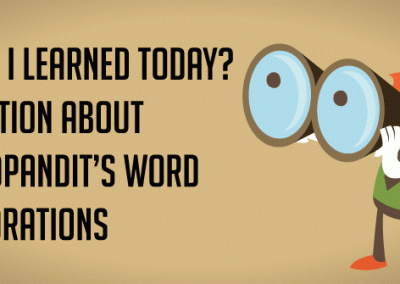Meaning and Origin of Putsch
Hi there.
What is this section all about? This is Wordpandit’s personal Vocabulary blog, and this is where I discuss my vocabulary journey.
Never stop learning, because life never stops teaching.
Being a firm believer in the above, I extend the same to my vocabulary development and make sure I explore any interesting word I discover.
The discovery for today: Putsch.
I discovered the word in this article.
The context for the word: In December 2014, an unlikely band of diaspora members — including two U.S. Army veterans and a Minnesota businessman — staged an assault on the presidential palace while Jammeh was outside the country. The putsch failed, and the regime responded with fury, sentencing eight alleged coup plotters to death and indiscriminately jailing scores of Gambians suspected of being associated with them, some as old as 84 and as young as 14.
The meaning of the word should be obvious from the above context, right?
Meaning of Putsch: a violent attempt to overthrow a government; a coup.
Upon exploring the etymology of the word (my favourite activity for a new word), discovered this about the word: the word has German origins and the Putsch in German means “revolt, riot,”. This is further a derivative from the Swiss dialect, where it means “a sudden blow, push, thrust, shock”.
This makes sense now, right? Coups are violent blows to the existing establishing and wish to shock them.
Putsch and Coup
Another word that comes to my mind and one you should explore now is the French phrase “coup d’état”. It is another term for a coup. The phrase translates to a “stroke of state” or “blow against the state”. The Wikipedia page for this word does make for interesting reading, and you should explore it here.
This completes the vocabulary lesson for today. Hope you had fun learning these two new words.
Happy Learning and Word-exploration…:)
Wordpandit














This is avocation at its best!
Exploring etymology embellishes the entire activity. Affinity to German language brought me to your article, unlike english how oftenly it uses consonants ‘sch’ together.
Well, brilliantly crafted article. Heading to read few others 🙂
Thanks Gurmeet
Your words have made our day..:)
Team Wordpandit
This is avocation at its best!
Exploring etymology embellishes the entire activity. Affinity to German language brought me to your article, unlike english how oftenly it uses consonants ‘sch’ together.
Well Brilliantly crafted articl. Heading to read few others 🙂
Thanks Gurmeet..:)